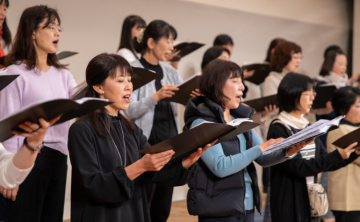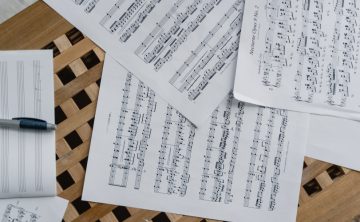Understanding Printed Music Copyright and How this Benefits an Arranger by Mark De-Lisser

Understanding printed music copyright and how this relates to choirs
Many choir leaders find the issue of copyright complex, difficult and a little bit scary. That nightmare feeling of someone stopping you mid performance to say that you can’t sing their arrangement is terrifying. That scenario however, is pretty far-fetched but you understand my point. Having a licence to cover all these complex issues is a simple way to a better night’s sleep or at least removing that nightmare from your nocturnal Netflix choices.
There are several different licences needed for the types of activities that choirs undertake such as copying sheet music or performing in a venue. So let me run through a few that will hopefully clarify any queries you may have around this.
So what does copyright protect in printed music?
Providing the music is still within copyright and not in the public domain:
- The music itself is protected as a musical work
- Any lyrics are protected as a literary work
- Copyright in the typographical arrangement of a published edition usually belongs to the publisher of the work
How do I legally photocopy sheet music?
It is important to remember that if you are copying or arranging a work written by someone else you either need:
- To obtain direct permission from the rights holder(s) or the publisher of work. This can often be time consuming and possibly expensive.
- A relevant licence. The PMLL Amateur Choir Licence allows you to legally make photocopies of sheet music and make minor arrangements of the sheet music without needing individual permission from the rights owner(s).
How can the PMLL Amateur Choir Licence help?
The PMLL offers the Amateur Choir Licence which simplifies the licensing process for choirs whilst working with music publishers to ensure songwriters and composers are fairly paid. It is an easy and straightforward way to legally photocopy sheet music. The Amateur Choir Licence is not designed to replace buying books, but to make it easier when choirs wish to make photocopies of works for members of their group.
A condition of the licence is that choirs report what they have copied. The money that PMLL collects in licence fees is then paid back to publishers, based on the data reported, who onward pay the writers and composers of the music. We want to make sure composers and writers are able to earn a living from the use of their works, so they can continue to write and compose music for choirs and the wider public.
As a published arranger, I get numerous requests from choir leaders like:
- Can I buy one of your books and make photocopies for my members?
- I can’t afford to buy a book per member and single sheets aren’t available, what can I do?
- We have learnt your arrangement and we’ve been asked to perform it, do we need a licence?
Usually, my response is “Sure go ahead, whatever makes it easier for you, I just want to get more people singing”.
This approach is problematic as I am sure you can understand. For all my hard work and dedication to making music for choirs to use to enhance lives and uplift audiences through performances, I still need to eat and share some of that food with my kids (if they are lucky). I am not trying to become a millionaire from my arrangements but having the security of knowing that my work is respected by choir leaders and protected by a licence is a real bonus and will keep me arranging for as long as I have the strength to.

